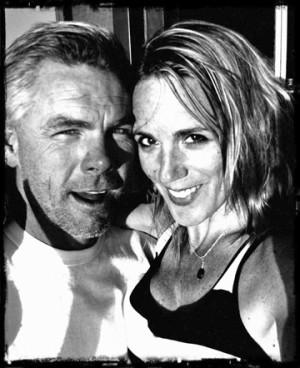By Slim Wolfe
From the President on down to the economics prof at the local school, they’re all making verbal capital out of the economic crisis and the imminent death of the middle class, but maybe it’s time to define our terms. Economic crisis might be defined easily, as when people are reduced to eating ground tree-bark and scavenged weeds, as, say, in the American south after the Civil War, or in rural China after the cultural revolution. Another example would be during the German siege of Leningrad when boiled wallpaper glue was a staple of many people’s diet. Having to let the cleaning lady go, or downsizing from an oversized house in the suburbs doesn’t seem to me to qualify as a crisis, though it might fit the euphemism “course correction.” According to the high priest of the free market, the gods of capital will occasionally deign to descend to our mortal plane and show us a better way.
Defining “middle class” is a trickier proposition. “Middle” implies a class above and a class below, and in the Ponzi scheme of our economy one clambers and schemes one’s way up from the lower class (immigrants, mainly) with the goal of attaining middlehood, a condition which enables one to be spared the burden of physical labor and coarse living conditions which one suffered as a worker. Merchants and middle managers (capitalist or communist) moved up from the laborer’s cap and britches to the bourgeois fedora and business suit, drove cars without dings, had less dirt on their hands and fewer sore backs, and with a bit of luck, they forgot about the plight of their former milieu, and perhaps aspired to the more lofty upper crust and did their best to ape their ways.
In recent times, the category of low-class work has expanded to include anything beyond scrolling and thumbing. Rolling down a car window or remembering your spouse’s telephone number are onerous tasks for the unfortunate; using one’s brain to multiply five times five is unthinkable, waiting more than three seconds for a connection or a fried fish sandwich is as uncouth as getting out of your ATV and walking a few yards for a good shot at your trophy elk, and only a cretin would produce art or music without the latest software. Whatever you think about the human as a nearly-vestigial animal, you might well wonder where the food, water and clothing for an expanding population will come from when the coming generations of third-world farmers and factory workers have cashed in their tractors and sewing machines in favor of YouTube and Facebook. The sort of course correction we’ll need to The sort of course correction we’ll need to stay sustainable is an evolved body which gets all its nutrients from the pollution in the air.
Middle class was a novelty to me when I was growing up – and still is, now that I’ve been around for sixty five years. I had one or two relatives who lived in the high rise apartments with elevator men and weekly housekeepers, but I lived out my childhood in brick low-income housing blocks filled with immigrants from overseas or from rural American poverty, who were more likely to succumb to drug addiction or gang-bangers than to rise to the middle class and get out of the ghetto. Those few friends of my mothers who made it to single-family dwellings with yard and garage were reached by long and tedious train rides through dark and smelly tunnels. They themselves had to commute to middle-class jobs back in the urban jungle to support their lives in post-World War Two America, caught in the middle between the silk-hat bosses and the tweed-cap labor. That sort of life seemed pointless to me then, and still does. Those labor union delegates we see in the old photos, dressed to the nines, were almost as ludicrous as the upper-crust with their butlers and coachmen.
At age thirty I fell in love with the rural Colorado life: not the skiing, rafting, or other bourgeois entertainments, but the notion of the independent hard-scrabble cabin dweller. In the first few years of Colorado Central Magazine, there was much musing about the “old west” versus the “new west,” and I’ve tried to stick with some of the old, not for the “romance,” but for the integrity. Maybe part of the definition of middle-class is not having to bust your ass to build your own shelter and haul your own wood. Even in 1980 there were middle-class subdivisions in west Leadville for the better-paid miners who didn’t mind borrowing money or pulling up stakes and moving on to pursue their middle-class lives after Climax laid off and shut down. All that might be human nature, but it’s not mine. I figured the best thing I could do for the American economy was not be part of it, and stayed beneath the radar. The middle class remains as distant from me as an Eskimo’s canoe on the Bering Sea, and I hardly see that as a crisis, but I will take their money when they want my services. No need to involve Our Lady of the Perpetual Mark-Up or other middle-class notions.
Slim Wolfe sells rural-chic furniture and other items made from Uncle Sam’s firewood allotments, bakes bread and gardens a lot.



What do you think that we need to do to make work respectable again?
Contributor Slim Wolfe is electonchemically incompatible with computer format and does not keep up with postings to this website. He was alerted by a friend to a reader’s question:
“What do you think we need to do to make work respectable again?”
Very good question. I think we need to abolish profit and private property. If we can’t do this for society as a whole at the present time we can at least do it in our attitudes and join others in building worker-owned collectives, living places, and non-profit corporations like the now-defunct Blue Cross health insurance program.
“First nation” native societies were able to function largely in the realm beyond property and profit, which is not to say they were above human failings, hierarchies, and abuses. The founders of the Soviet Union attempted to adopt communal society to modern industrial reality, but unlike first nations, they had to reverse existing paradigms of ownership and subservience. Unfortunately they fell into a pattern of deceit, coercion, and punishment, and wound up a horrific muddle. Today’s talking heads want us to think that the question of communalism is no longer debatable, that people only achieve their best when the carrot of selfish gain is held out in front. That’s a specious and self-serving argument. There are many kernels of useful principle in the history of non-profit, non-property nations which deserve our attention.
At age 45 I acquired an undesirable building lot in one of rural Colorado’s more squalid neighborhoods and began a 20 year process of creative, work-intensive home building which totally altered my sense of self, potential, and “respectability.” I learned to live outside the norms of the economy (jobs and consumption) and beyond the norms of what a consumer is “entitled” to – like a presentable vehicle and wardrobe, an up-to-date washing machine, not to mention e-mail and caller ID and I-Pods. I don’t live in a collective, but rather like the independent artisan-farmer of Jeffersonian America, albeit on a very small scale. I think making work respectable goes hand in hand with making living respectable – the self- respect of not being a slave to the norms of consumer madness, be it sweatshirts emblazoned with advertising, pop-tarts, Twinkies, and net-flicks, tweets, and shopping at the mall. The entitlement to consume implies the entitlement to take advantage of cheap labor, in today’s economy.
I sometimes wonder how the non-prof-non-props – the first nations and the first social revolutionaries – might have turned out had they been left entirely to their own devices – without constant incursions and interference from the stock marketing colonials. Maybe they would not have turned cruel and violent. Something to think about, as we watch the latest multinations scarf up what’s left of our resources.